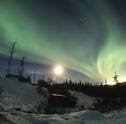Human spaceflight has contributed greatly to space knowledge. To ensure the safety of spacecraft crew, scientists around the world have carried out thousands of experiments. However, accidents do occur.........
The Challenger was an American space shuttle orbiter that first launched on April 4, 1983. On the tenth launch, mission STS-51-L, the infamous Challenger explosion occurred. The launch of Challenger was rescheduled several times due to bad weather and other technical difficulties. The day of the launch was the coldest day that NASA had ever launched a shuttle. After some delays, the Challenger was launched for the tenth time. No one knows what happen next will shake the whole world.
A split second into flight, a puff of gray smoke began spurting from right Solid Rocket Booster. Later studies revealed that the dense, black puffs indicated grease, joint insulation, and rubber O-rings in the joint seal were burning up. This resulted in a series of reactions that resulted in the explosion of the spacecraft 72 seconds after launch. The cause of explosion was an O-ring that failed to seal properly, and the cold weather that day contributed to its failure. Seven crew members died in the Challenger explosion.
This terrible accident prompted many scientist to investigate the cause and be able to build a safer spaceship for the future flights.This is why accidents rarely happen these days.......
credits to thinkquest
li cheng's blog at the arctic
WELCOME!please enjoy the wonderful display of northern light!
Monday, July 7, 2008
Subscribe to:
Comments (Atom)



